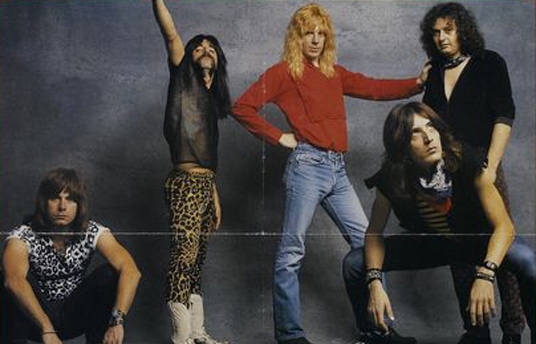Mockumentaries
Mar 25, 2013

Mockumentary: 'This Is Spinal Tap'
By Emily C. Reubush
No study of the art of documentaries would be complete without at least a brief study of the black sheep of the documentary family, the mockumentary.
At its most basic, a mockumentary is simply a fictitious or staged film or performance, shot in the style of a documentary. Though often comical, these films are not required to be mocking, as the word means a ‘mock documentary’. One of the earliest well-known examples of the form is Orson Welles’s infamous 1938 CBS broadcast of a radio play version of H.G. Wells’s ‘War of the Worlds’, which, while it did not cause the mass hysteria and suicides of the myth that has grown around it, did generate a certain amount of panic and outrage – and had a monumental impact on the way stories could be told.
In a variation, in 1953 the American television show ‘You Are There’ used the documentary format to engage viewers with history, presenting recreations as archival footage and interviews, with actors playing the part of historical figures.
It is thought that Woody Allen was the first to use the mock-doc as a vehicle for comedy with his 1969 film ‘Take the Money and Run’, which presented itself as a documentary about an inept career criminal. It wasn’t until 1984, however, that the mockumentary hit the big screen big time, with Rob Reiner’s ‘This Is Spinal Tap’, for which the term ‘mockumentary’ was coined (also, ‘rockumentary’). The premise: a filmmaker (Reiner) who is a fan of the (fictitious) British rock group Spinal Tap accompanies them on tour in order to make a documentary film; disaster after disaster ensues. This film not only has a 95% rating on Rotten Tomatoes, it has been deemed ‘culturally, historically, or aesthetically significant’ by the US Library of Congress and was selected for preservation by the United States National Film Registry.
Since ‘Spinal Tap’, the mockumentary has become a standard comedy offering; the most obvious (and among the most hilarious) film examples being Christopher Guest’s ‘Waiting for Guffman’ (1996), ‘Best in Show’ (2000) and ‘For Your Consideration’ (2006). And since the start of the millennium, the mockumentary format has enjoyed major success on the small screen, through a wave of largely comedic television shows such as ‘The Office’, ‘Arrested Development’, ‘Reno 911’ and ‘Parks and Recreation’.
In 1999, the mockumentary took a twist with the found-footage revelation of ‘The Blair Witch Project’. A highly convincing online viral marketing campaign brought tens of thousands of viewers to cinemas to see what they believed was recovered footage shot by film students who had disappeared while making a documentary about a local legend. (Interesting that, six decades after Welles’s radio trickery, the public can still be misled en masse by a pretty simple manipulation of mass media…)
The mockumentary format has also been used on occasion to offer serious critiques of our world – its inherent satirical nature offering an important bridge between truth and fiction. Belgian film students Rémy Belvaux, André Bonzel and Benoît Poelvooder’s cult film ‘Man Bites Dog’ (1992), for example, features a film crew documenting the actions of a serial killer; as his killing spree continues uninterrupted by the the film crew, they –and by extension the audience – are darkly implicated in the glamorising and encouragement of violence, murder and torture.
The form also offers a way to make difficult or even forbidden topics more accessible to audiences. Neill Blomkamp’s ‘District 9’ (2009) is a fascinating case, using as it does a variety of documentary styles – along with impressive CGI – to tell the story of the forced removal of a large group of aliens from the slum in Johannesburg where they have been confined since their spaceship arrived above the city in 1982. Just the slightest scratch of the film’s surface reveals, of course, that it is a critique of South Africa’s racist apartheid policies: the events in ‘District 9’ are an allegorical representation of the apartheid regime’s treatment of the people of Cape Town’s real-life District 6 in the 70s.
Underneath the hilarity, ‘This Is Spinal Tap’ has much to say about the insanity and excess of rock culture; ‘Man Bites Dog’ questions our casual attitude toward violence; ‘District 9’ retells a horrible episode in recent history. These are subjects that many of us would not consider learning about in a straightforward documentary. But in mockumentary form, they are enjoyable and palatable – in a word, entertaining. Occasionally, this means they just might provide more truth than non-fiction.